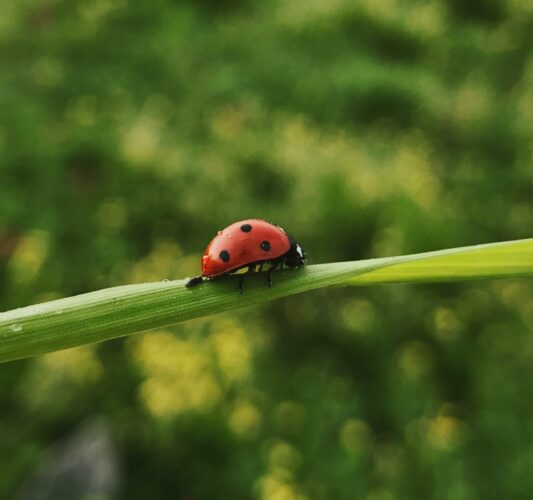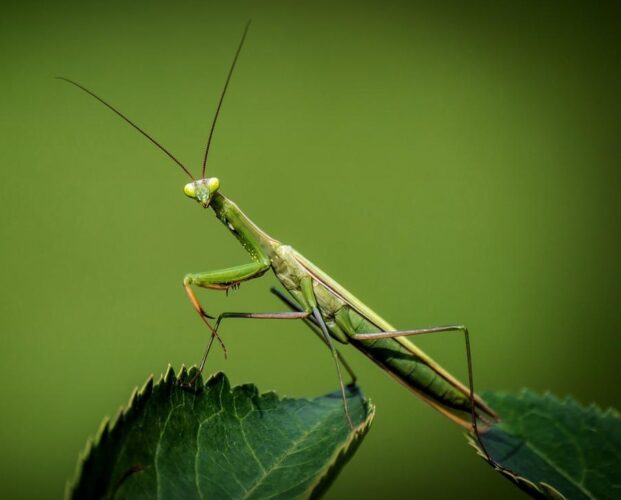This post may contain affiliate links. Please see my disclosure policy to learn more.
Do you have a green thumb? If so, you know that keeping your garden healthy is essential for having a beautiful yard. One way to maintain your garden’s health is by attracting beneficial bugs. These bugs help to control the population of pests and can even improve the overall health of your plants! Below, we list some of the most common beneficial garden bugs.
Ladybugs
One of the most beneficial insects for your garden are ladybugs. Ladybugs are voracious predators of aphids and other small, soft-bodied insects that can wreak havoc on your plants. A single ladybug can eat as many as 5,000 aphids in its lifetime! In addition to controlling pests, ladybugs also help to pollinate plants. As they feed on pollen and nectar, they transfer pollen from one flower to another, helping to fertilize the plants. Ladybugs are also a valuable food source for birds, bats, and other predators. By providing food for these animals, ladybugs help to support the entire ecosystem. As a result, these tiny insects play a big role in keeping your garden healthy and thriving. Most garden centers sell live ladybugs to the public.
Praying Mantis
A praying mantis can be a beneficial addition to your garden as they are known to eat many different types of pests. Some of the pests that a mantis will consume are flies, crickets, grasshoppers, caterpillars, and even some small lizards or snakes. In addition to being voracious predators, praying mantises are also interesting in their appearance and behavior. These insects have elongated bodies and segmented legs, which allow them to move quickly and strike with precision. They are typically green or brown in coloration, providing excellent camouflage amongst the foliage of gardens and forests. When prey is spotted, a mantis will remain still until it is within range, at which point it will strike with lightning speed. If you are looking for an efficient way to control pests in your garden, consider adding a praying mantis or two. Not only will they help to keep the population of harmful insects in check, but they will also provide you with hours of entertainment.
Ground Beetles
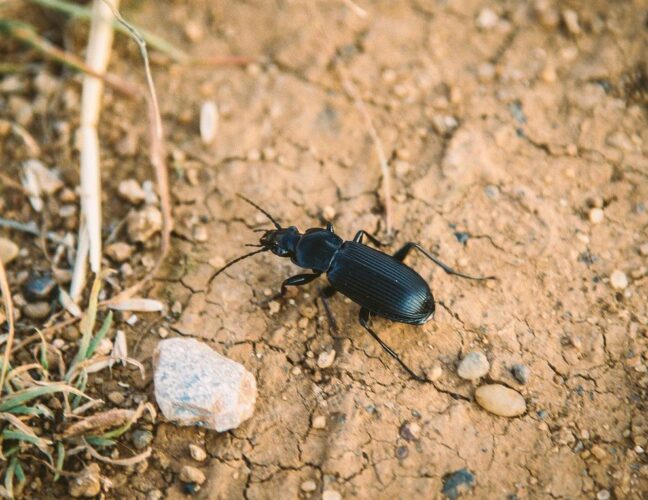
Ground beetles are a vital part of any thriving garden ecosystem. These hardworking insects burrow through the soil, break up compacted soil, and bring nutrients to the surface. As a result, they help to improve soil quality and make it hospitable for plant growth. In addition, ground beetles act as natural predators for many common garden pests. They feed on destructive insects like aphids and grubs, reducing their numbers and protecting important crops from damage. So if you want your garden to flourish, be sure to let the ground beetles do their work! With their tireless activity and powerful pest-fighting skills, these little field warriors are essential for a healthy garden. Whether you’re trying to grow fruits and vegetables or just enjoy some beautiful landscaping, ground beetles can help you achieve your gardening goals. With a little bit of TLC, they will do wonders for your green space!
Hoverflies
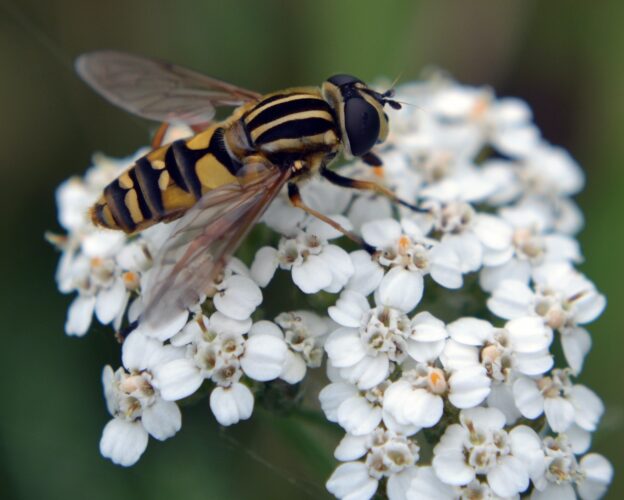
Hoverflies, often mistaken for bees, are actually beneficial predators that feast on common garden pests like aphids and thrips. While adults primarily eat nectar and pollen, the larvae are voracious eaters of soft-bodied insects. In addition to providing valuable pest control, hoverflies are important pollinators of both fruits and vegetables. The adult flies are attracted to brightly colored flowers, and their bodies are covered in tiny hairs that help to transfer pollen from one plant to another. As a result, hoverflies play a vital role in the health of both gardens and ecosystems.
Spiders
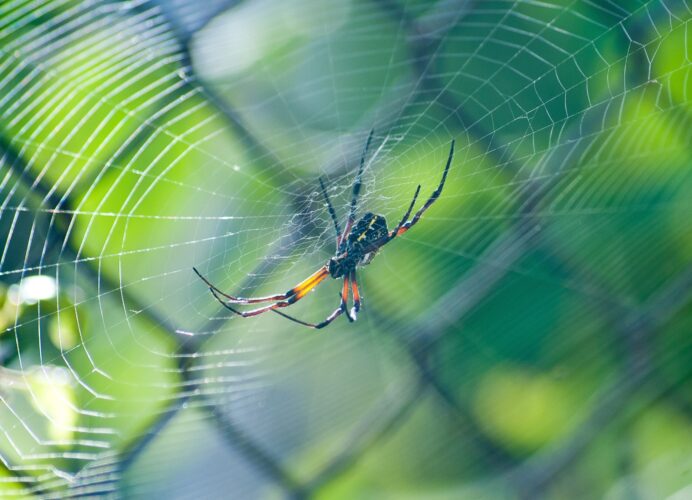
Spiders are often associated with fear and revulsion, but they actually play a crucial role in many healthy gardens. Firstly, they serve as natural predators, feeding on pests such as insects and other small invertebrates. They also help to keep populations of harmful bugs in check by consuming them before they can do any damage. Additionally, spiders are thought to play an essential role in pollination, as many of their prey are insect pollinators. Finally, spiders provide homes for beneficial microorganisms that help break down dead plants and animals, releasing nutrients back into the soil. In short, spiders may seem creepy at first glance, but they are an important part of a thriving garden ecosystem.
Soldier Beetles
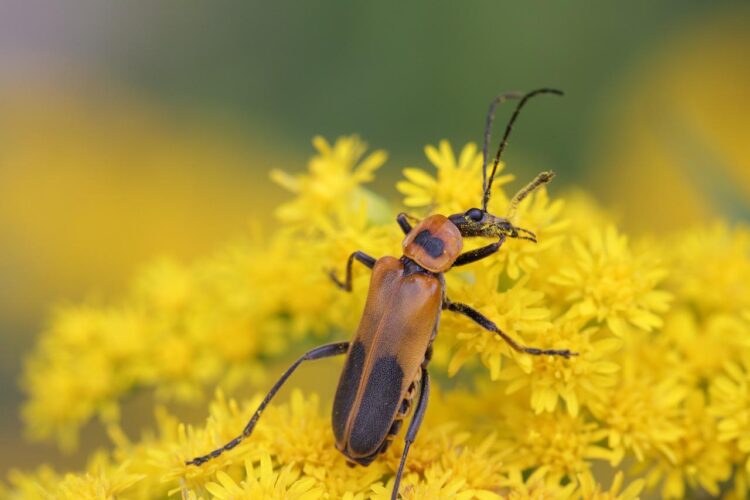
Soldier beetles are a type of predatory beetle that feeds on a variety of soft-bodied garden pests, including aphids, caterpillars, and grasshoppers. While they will occasionally feed on flower petals, they typically do not cause any significant damage to plants. Soldier beetles are yellow or orange in color and have long black markings on their wings. They are often found near gardens or fields where they can find an abundance of food. In addition to being beneficial predators, soldier beetles also help to pollinate flowers. Their larvae are also active predators, making them doubly effective at controlling garden pests. Given their many benefits, it is no wonder that soldier beetles are one of the most popular beneficial insects among gardeners.
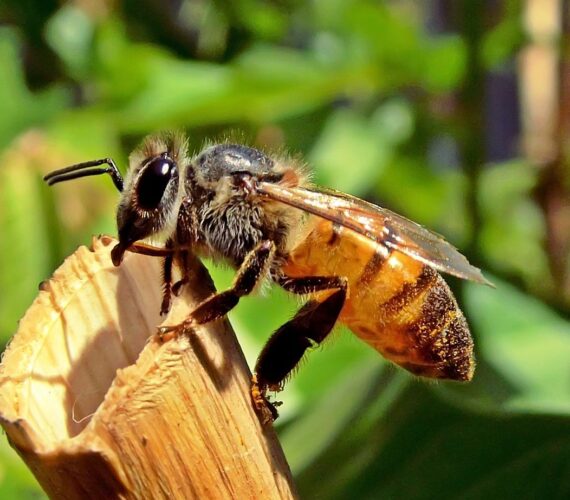
When most people think about beneficial garden bugs, bees are what come to mind, but many bugs are beneficial for gardens. Many of them play an important role in keeping the ecosystem healthy. Ground beetles, hoverflies, spiders, and soldier beetles are all examples of beneficial garden bugs. These helpful insects help to control pest populations, improve soil quality, and pollinate flowers. So next time you see a bug in your garden, take a closer look – it might just be one of these beneficial little creatures!
- Includes a Ladybug educational sheet with Release Tips, Release Rates, Ladybug Fun Facts and FAQ's
- Can be stored in the refrigerator for up to 2 weeks!
- Ladybugs are general predators that feed on a variety of slow-moving insects including Aphids, Moth eggs, Mites, Scales, Thrips, Leaf Hoppers, Mealybugs, Chinch Bugs, Asparagus Beetle larvae, Whitefly and others
- Ladybugs are good bugs great for kids, birthday parties, school projects!
- Good Bug Diet- Keep your Beneficial insects fed and attract native bugs to your garden
- Mix 1 cup of warm water with 1/2 cup of food
- treats approx. 1,500 sq. ft.
- Half Pound Bag
- Includes a Ladybug educational sheet with Release Tips, Release Rates, Ladybug Fun Facts and FAQ's
- Nature's Good Guys 750 mesh bag of Live adult ladybugs
- Ladybugs are general predators that feed on a variety of slow-moving insects including Aphids, Moth eggs, Mites, Scales, Thrips, Leaf Hoppers, Mealybugs, Chinch Bugs, Asparagus Beetle larvae, Whitefly and others
- Ladybugs are good bugs great for kids, birthday parties, school projects!
- 300 Live Ladybugs, Pre Fed!!
- 300 ladybugs covers aprox. a small yard or a birthday party
- Ladybugs are general predators that feed on a variety of slow-moving insects including Aphids, Moth eggs, Mites, Scales, Thrips, Leaf Hoppers, Mealybugs, Chinch Bugs, Asparagus Beetle larvae, Whitefly and others
- Nature's Good Guys mesh bag of Live adult ladybugs


